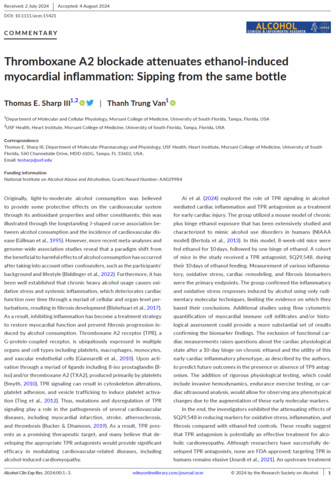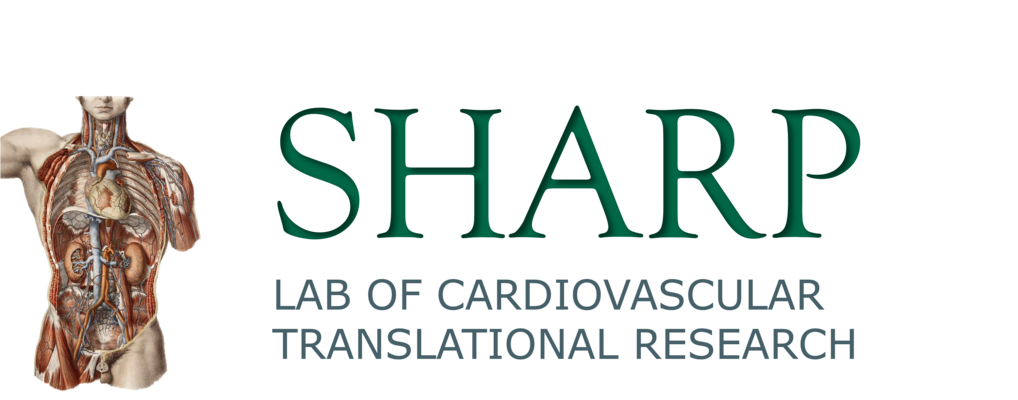
Thromboxane A2 blockade attenuates ethanol-induced myocardial inflammation: Sipping from the same bottle.
Originally, light-to-moderate alcohol consumption was believed to provide some protective effects on the cardiovascular system through its antioxidant properties and other constituents; this was illustrated through the longstanding J-shaped curve association between alcohol consumption and the incidence of cardiovascular disease (Gillman et al., 1995). However, more recent meta-analyses and genome-wide association studies reveal that a paradigm shift from the beneficial to harmful effects of alcohol consumption has occurred after taking into account other confounders, such as the participants' background and lifestyle (Biddinger et al., 2022). Furthermore, it has been well established that chronic heavy alcohol usage causes oxidative stress and systemic inflammation, which deteriorates cardiac function over time through a myriad of cellular and organ-level perturbations, resulting in fibrosis development (Bishehsari et al., 2017). As a result, inhibiting inflammation has become a treatment strategy to restore myocardial function and prevent fibrosis progression induced by alcohol consumption. Thromboxane A2 receptor (TPR), a G-protein-coupled receptor, is ubiquitously expressed in multiple organs and cell types including platelets, macrophages, monocytes, and vascular endothelial cells (Giannarelli et al., 2010). Upon activation through a myriad of ligands including 8-iso prostaglandin (8-iso) and/or thromboxane A2 (TXA2), produced primarily by platelets (Smyth, 2010), TPR signaling can result in cytoskeleton alterations, platelet adhesion, and vesicle trafficking to induce platelet activation (Ting et al., 2012). Thus, mutations and dysregulation of TPR signaling play a role in the pathogenesis of several cardiovascular diseases, including myocardial infarction, stroke, atherosclerosis, and thrombosis (Rucker & Dhamoon, 2019). As a result, TPR presents as a promising therapeutic target, and many believe that developing the appropriate TPR antagonists would provide significant efficacy in modulating cardiovascular-related diseases, including alcohol-induced cardiomyopathy.

